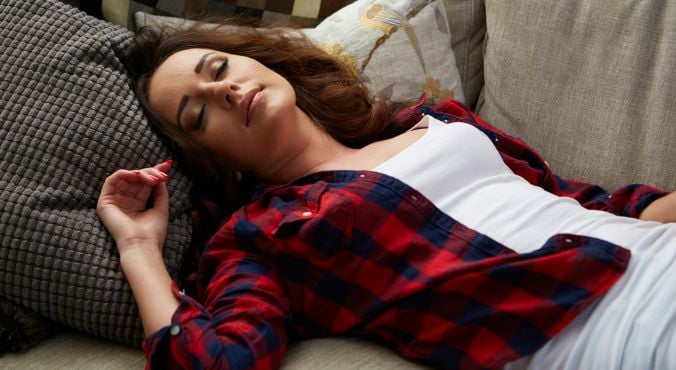
Image: iStock. By Melinda Jackson, RMIT University.
During my first lecture to third-year psychology students, I noticed one of the students was asleep for the whole hour-long lecture. I immediately thought – is the lecture boring? Am I speaking in a monotone voice? Is the content uninteresting?
The following week, and every week for the rest of the semester, the same student was asleep every single lecture.
Surely not every one of my lectures was that uninspiring that he couldn’t stay awake for just a few minutes?
It got me thinking – the lecture was at 9am – perhaps he is a night owl and mornings do not suit him. He may have been working late and did not get sufficient sleep the night before each lecture. Perhaps he has a medical condition or is using prescription medication that makes him drowsy.
The fact is, many factors contribute to us falling asleep unexpectedly, in inappropriate places, or even when we really don’t want to.
Watch: Mamamia Confessions: What Mums get up to when their children are asleep. (Post continues after video.)


